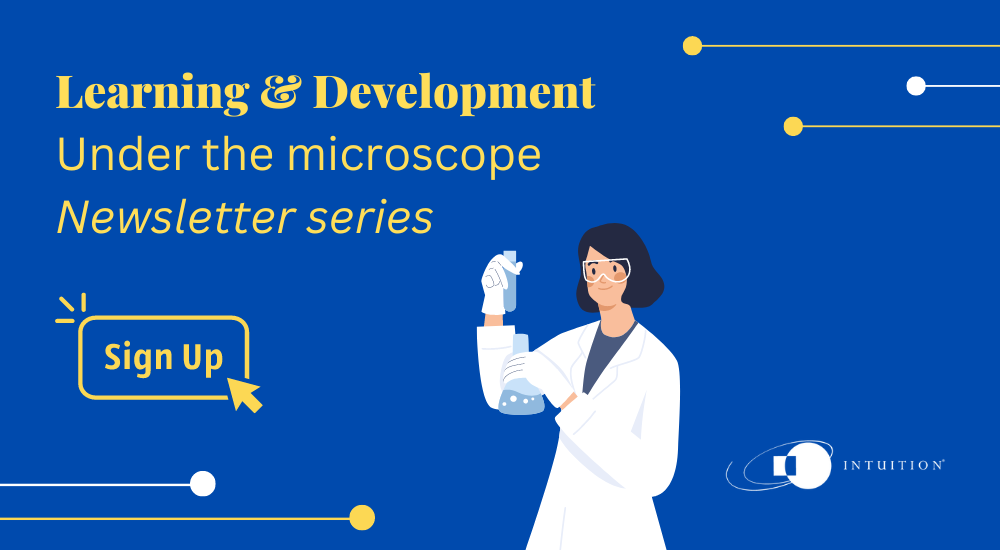How HCP education can drive your Medical Affairs strategy
Medical Affairs (MA) teams within life sciences organizations are responsible for communicating scientific and clinical information to relevant stakeholders, including HCPs, patients, and internal stakeholders such as Medical Science Liaisons (MSLs).
Most roles that MA teams now occupy were previously filled by the commercial side of the business. Over time, as clinicians required more information about drugs and equipment, the need for specialized staff who could respond to queries quickly and accurately became clear.
Regulatory and compliance standards also forced organizations to restructure their commercial teams. These changes were motivated by the need for companies to ensure that non-promotional exchanges were not swayed by commercial teams.
While adherence to compliance standards remains a priority, appropriate and effective collaboration between MA and commercial teams will be a hallmark of any successful life sciences organization.
A 2019 industry report reflects the above points, describing MA as the third strategic pillar after commercial and R&D within life-sciences organizations. As MA evolves, it is natural that Learning & Development (L&D) initiatives develop in tandem with the importance of the function. This article will highlight areas where effective L&D can make the biggest impact for MA teams.

HCP education
MA teams own and distribute large amounts of scientific data across the life cycle. Their medical backgrounds allow them to build credibility within their own organizations and with primary stakeholders such as HCPs and KOLs.
This development has coincided with the changing nature of HCP engagement within life-sciences organizations. For instance, in-person engagement from field force sales teams has been in steady decline since the mid 2000s, according to ZS Associates’ analysis of the US physicians’ market. The deterioration of this once dominant strategic arm of life-sciences organizations has forced companies increasingly to turn to digital engagement methods.
L&D initiatives are inherently suited to fill the gaps left by this shift. When it comes to educating target audiences, the two main verticals to explore are usually:
- Content delivery
- Content creation
Essentially, MA teams must ensure that HCPs have access to the latest and most credible content from product knowledge to regulatory changes. Digital delivery through an engaging LMS makes sense in such scenarios.

What a good HCP L&D program looks like
While the COVID-19 pandemic accelerated this need, innovative organizations have been educating HCPs in the use of digital channels for many years. The goal of any proficient HCP learning program should be to ensure that the Right content is delivered to the Right person at the Right time.
Content creation
From a content creation standpoint, MA teams play a vital role. Where possible, engaging instructional design should be prioritized – Investment in eLearning is expensive and MA teams will need to account for the shelf life of content before choosing this path. For example, if the content is related to a process that is subject to regular change, PowerPoints or pdfs may represent a more sensible option.
Adversely, if the content relates to a topic which rarely undergoes changes, MA teams should seek to create content that is as engaging as possible. Compliance training is one such area that should be prioritized as engaging content usually increases the likelihood of behavior change.
Content delivery
Regardless of the content type, MA teams that successfully utilize content delivery technology will be best placed to engage their HCP networks, helping them maintain and build customer relationships.
MA teams can also add value by integrating L&D technology with other HCP engagement channels such as event management and payment technology, where feasible. For example, an LMS used to engage HCPs can be integrated with the organization’s CRM software. Content engagement in the LMS can then prompt an action from the CRM, helping HCP-facing staff to deliver timely and meaningful communications.
Click here to see what a successful digital HCP education program can look like
Data analytics
As is the case with more general MA activities, the gathering and interpretation of HCP data is essential to optimizing future engagements and patient outcomes. MA teams can improve education initiatives over time through the measurement of predetermined data points within their programs.
The desire to improve programs constantly will help organizations make complex content accessible and digestible for HCPs going forward. Equally, increasing the visibility on physician insights arising from education initiatives can contribute to improved patient outcomes through improved programs.
Closing thoughts
MA teams are uniquely placed to be key strategic drivers for life-sciences organizations. Effectively educating HCPs through digital channels and engaging content represents a major opportunity here. While the use of digital HCP education platforms is not a new trend in the industry, the effective integration of such platforms with other HCP engagement channels is a challenging but potentially fruitful prospect.
Organizations that best deploy the unique skillsets of their MA function will ensure they are key stakeholders in scientific eLearning content creation and digital content distribution. Partnering with vendors who have experience engaging HCPs can be hugely beneficial in this context.
At Intuition, we have helped life-sciences organizations engage their HCP networks for over two decades. Our instructional design knowledge, content delivery expertise, and GXP-validated learning platform helps organizations build and maintain relationships with their HCPs. If you are interested in learning more about how Intuition can help your team, sign up to our L&D: Under The Microscope’ newsletter and contact one of our consultants.


